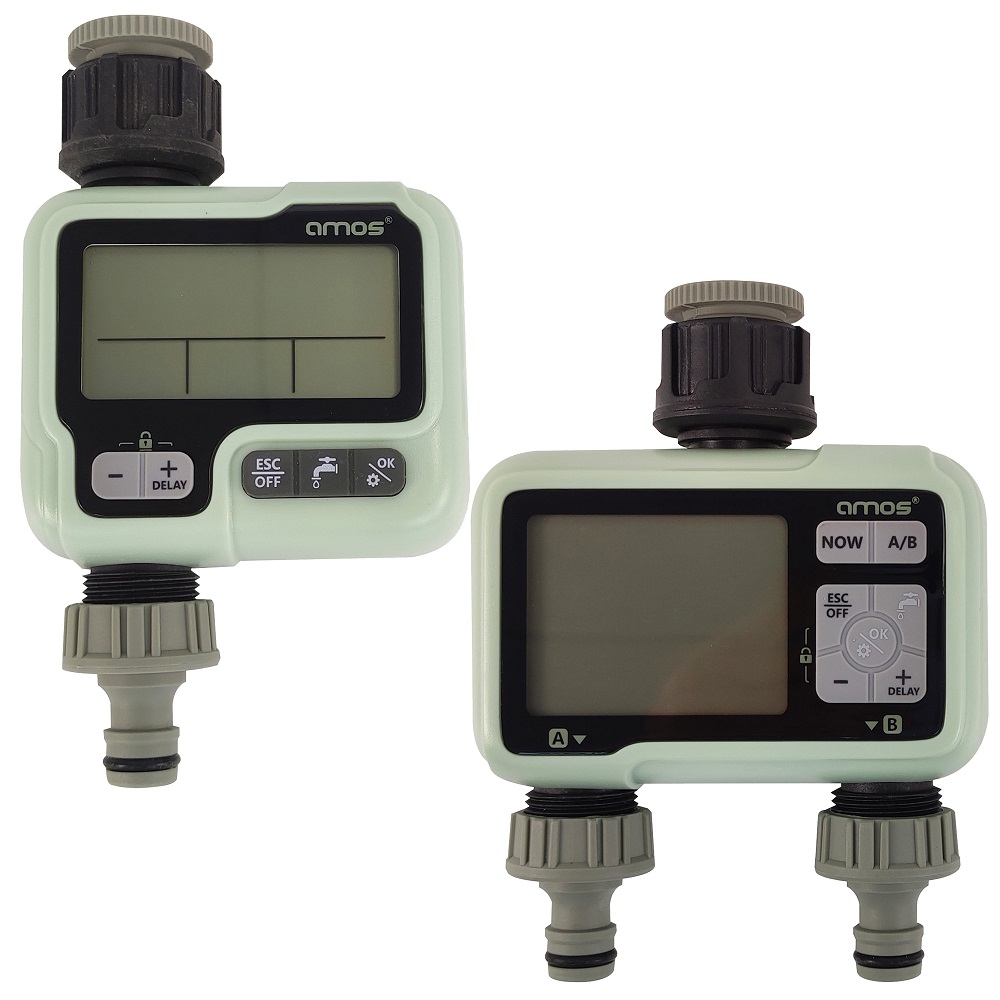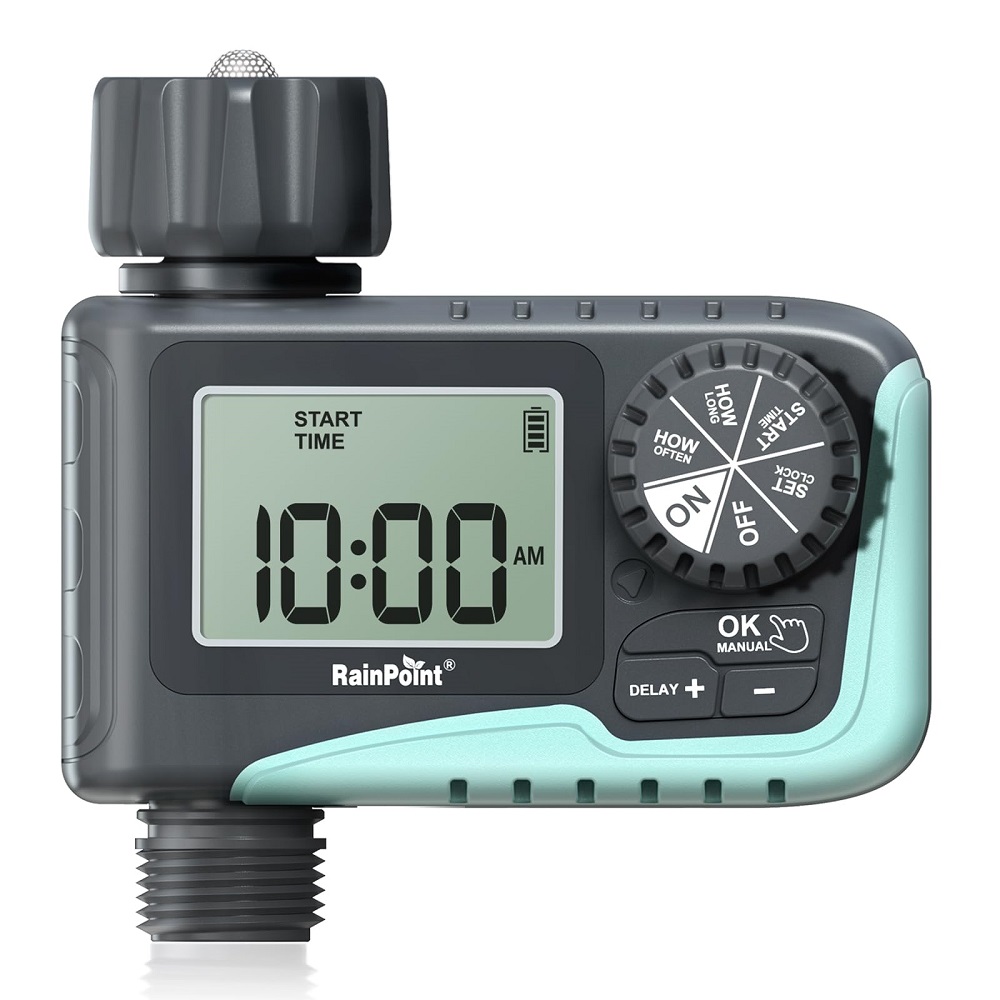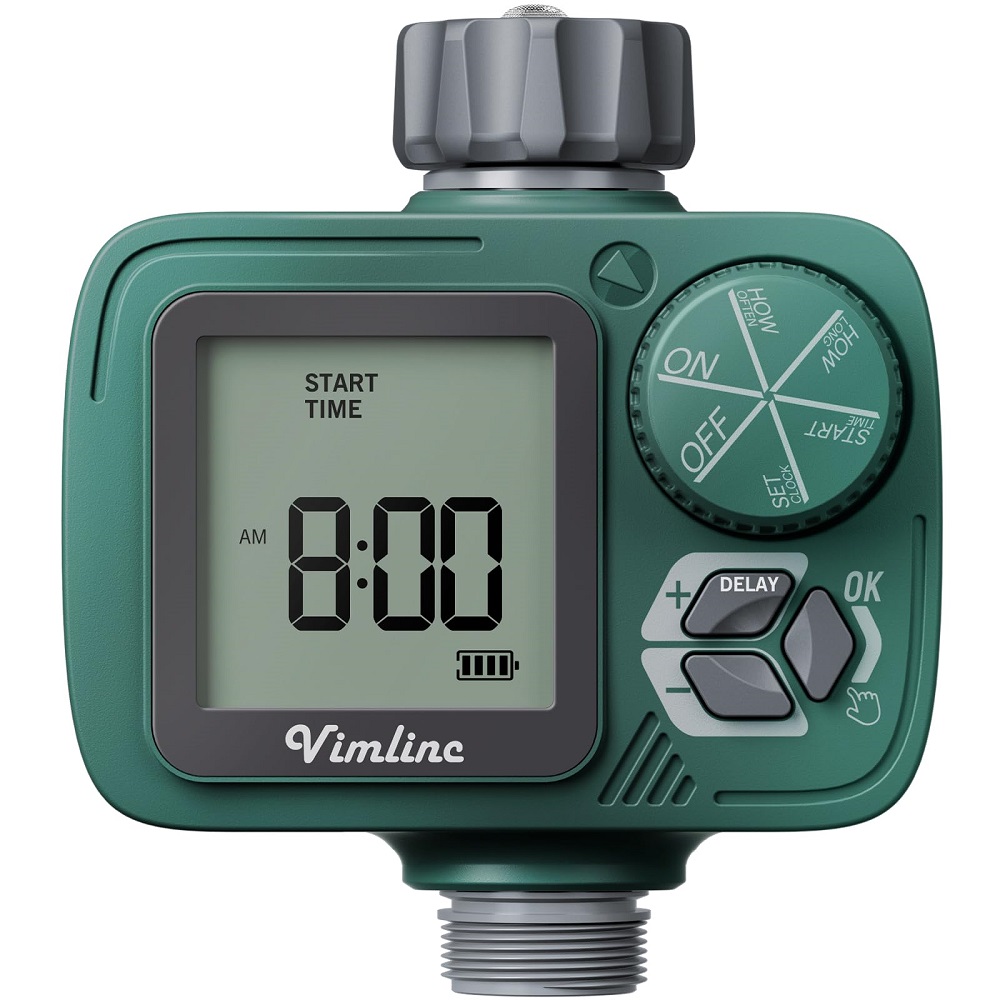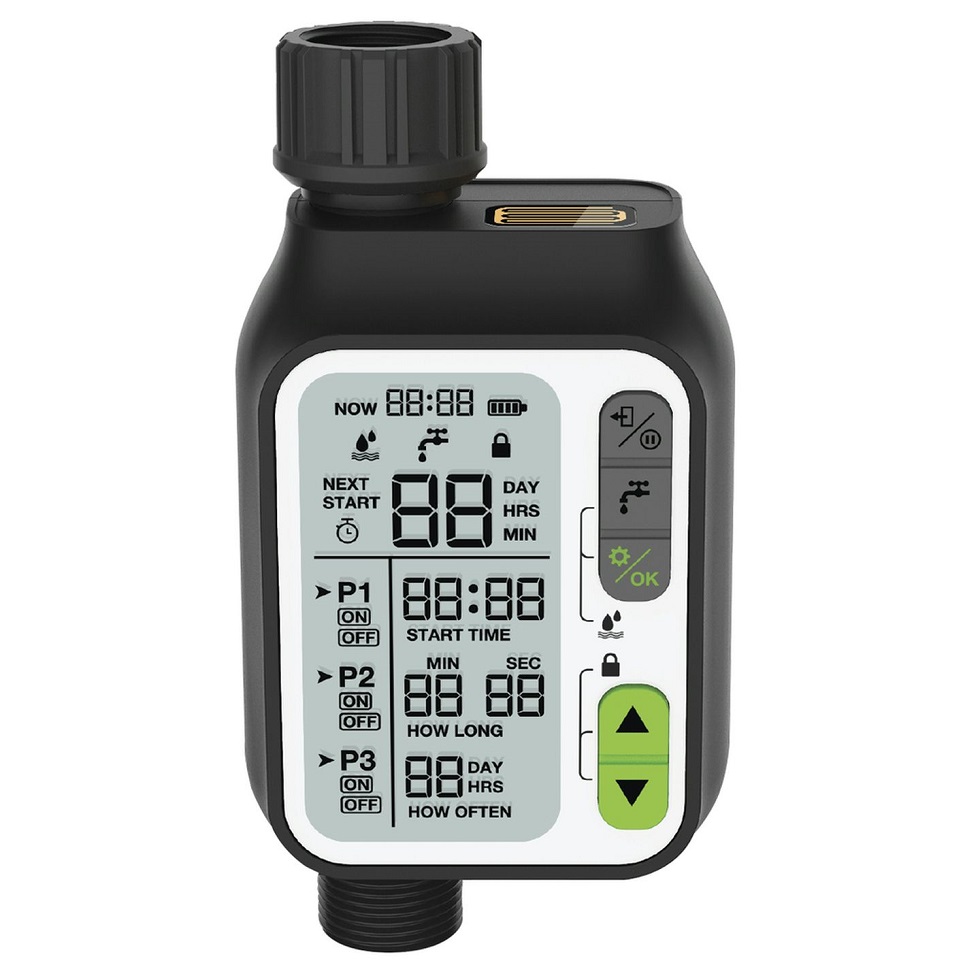Introduction
Water timers have revolutionized the way gardeners manage their irrigation systems. They provide a level of convenience and efficiency that is hard to beat. With the right water timer, anyone can optimize their watering schedule. This article will delve deep into the purpose, types, benefits, and installation of water timers, including the usage of water timers in different gardening settings.
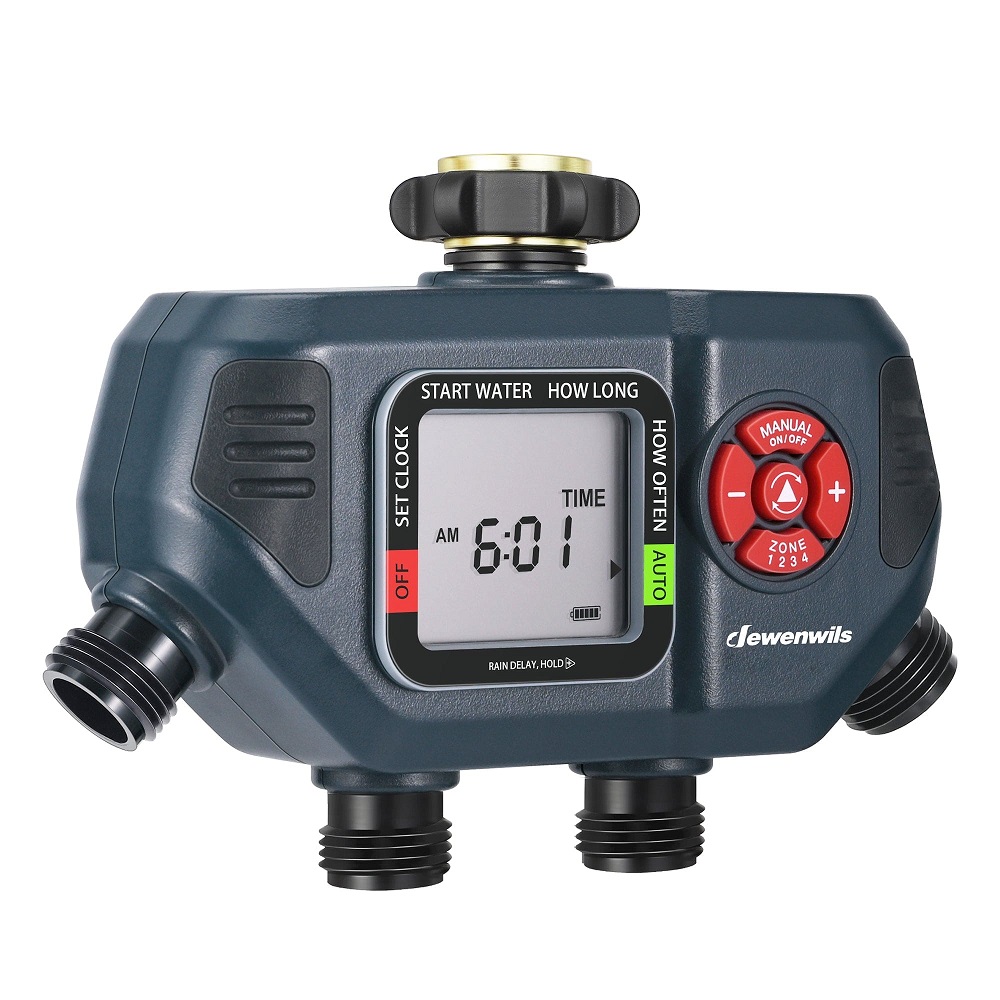
What is a Water Timer?
A water timer is a device that automates the process of watering plants. It connects to your outdoor faucet and allows you to set specific times for your irrigation system to run. Imagine being able to water your garden every morning at 7 AM while you enjoy your coffee indoors. This convenience is what water timers offer.
There are a variety of water timers available on the market. Some are digital, allowing for precise control over timing and durations. Others are mechanical and may require manual setting. Regardless of the type, the main function remains the same: to schedule water flow based on your plants’ needs. This automation takes the guesswork out of watering, making it easier to maintain a healthy garden.
Types of Water Timers
Water timers come in several types. The most common types include mechanical timers, digital timers, and smart timers.
Mechanical Timers
These are simple and affordable. They usually have a dial that you set for specific intervals. Once set, the timer turns the water on and off automatically. Mechanical timers are perfect for budget-conscious gardeners. Their simplicity makes them reliable, but they lack some advanced features.
Digital Timers
Digital timers offer more flexibility. They often include a display screen that makes it easy to set the desired watering schedule. Many digital models allow for multiple zones. This feature is particularly useful if you have different types of plants that require different amounts of water. With options for multiple start times and durations, digital timers ensure that each area of your garden gets the care it needs.
Smart Timers
The newest innovation in water timers is the smart timer. These connect to Wi-Fi and can be controlled via an app on your smartphone. Smart timers allow you to monitor and adjust your watering schedule from anywhere. Many even include weather sensors. This means they can skip watering during rainy days, saving water and keeping your plants healthy.
The Benefits of Using Water Timers
Using a water timer offers numerous benefits. First, they help conserve water. By scheduling specific watering times, you avoid overwatering. This is crucial in regions where water may be scarce. Saving water not only benefits your garden but also helps the environment.
Second, water timers ensure that your plants receive consistent moisture. Plants thrive on consistency. When you water them irregularly, it can lead to stress and poor growth. Using a water timer helps maintain a steady moisture level in the soil.
Third, water timers save you time. Rather than manually watering your plants daily, you can set it and forget it. This freedom allows you to spend more time enjoying your garden instead of working in it. You can even go on vacation without worrying about your plants.
Another significant benefit is the prevention of fungal diseases. Overwatering can lead to fungal growth in soil and on plant leaves. Water timers can help regulate the amount of water your plants receive. This regulation minimizes the chance of creating an environment conducive to disease.
Installing Your Water Timer
Installing a water timer is generally a straightforward process. Start by choosing the right location for the timer. It should be easily accessible but also suitable for outdoor use. Many timers are designed to endure outdoor conditions, but it’s always wise to check the specifications.
To install, first, turn off your outdoor faucet. Then, screw the timer onto the faucet. Ensure it is tightly secured to prevent leaks. Next, connect your garden hose to the timer. Again, make sure this connection is tight.
After that, if applicable, connect your irrigation system to the timer. If you are using drip irrigation, simply attach the tubing to the provided connectors. At this point, you are ready to set your watering schedule.
Most timers come with user-friendly instructions. Follow these instructions closely for optimal results. Make sure to test the timer after installation. Set it to water for a short time and observe if it operates as expected.
Troubleshooting Common Issues
Even with the best water timers, you may encounter issues. One common problem is that the timer does not turn on. This could be due to several reasons. First, check the power source. If your timer is battery-operated, replace the batteries.
Another issue could be that the water pressure is too low. Water timers often require a minimum water pressure to function correctly. You can check your home’s water pressure or consult a professional if you suspect this is a problem.
Sometimes, the timer settings can get accidentally changed. Always double-check your schedule if you notice issues. Resetting it may resolve the problem.
Clogs in the irrigation system might also be a concern. Regular maintenance of hoses and emitters is essential. Clean out any visible debris. This step ensures that water flows freely and that your plants receive adequate moisture.
Lastly, ensure that the timer is suitable for the climate in your area. Some timers may have trouble functioning in extreme temperatures. If you live in a particularly hot or cold region, consult user reviews before purchasing.
Water Timers for Various Landscaping Needs
Water timers are versatile tools that can cater to different landscaping needs. Whether you’re watering a small garden or a larger commercial landscape, there’s a timer for every scenario.
For home gardeners, a simple mechanical or digital timer often suffices. Vegetable gardens, flower beds, and indoor plants all benefit from having a regular watering schedule. Most home gardeners prefer timers that cater to their specific garden sizes and types. This need makes digital timers with zone-specific settings increasingly popular.
In contrast, commercial landscapes may require more robust solutions. Facilities managers often look for smart timers that offer remote management and monitoring. This capability allows them to manage multiple sites efficiently.
For parks and recreational areas, systems may include soil moisture sensors. These sensors can lead to substantial water savings by providing irrigation only when necessary. Understanding the specific needs of different landscapes helps in choosing the right timer.
The Future of Water Timer Technology
Looking ahead, the technology behind water timers will continue to evolve. As we become more aware of the need for sustainability, manufacturers are expected to prioritize eco-friendly designs. Future water timers will likely incorporate advanced sensors and data analytics. These features can further optimize watering schedules based on real-time weather data.
We may also see greater integration of artificial intelligence in these devices. Smart water timers could analyze plant health and soil moisture levels more effectively. By providing tailored watering schedules based on a garden’s unique conditions, these future devices could take precision agriculture to new heights.
Another exciting development is the potential for fully automated systems. Imagine a timer that not only waters your garden but also alerts you to other gardening tasks. This could include notifying you when it’s time to fertilize or prune your plants.
With growing interest in urban gardening and vertical farms, water timers will likely adapt to these unique environments. New designs may help balance watering needs in smaller and more complex setups. As technology progresses, the functionality of water timers will undoubtedly expand, making gardening easier for everyone.
Conclusion
Water timers are more than just convenience tools—Water timers are game changers for gardeners. They help conserve water, provide consistent moisture, and save time. With various types available, ranging from mechanical to smart water timers, there is a perfect match for every gardener and landscaping need.
Understanding how to install, troubleshoot, and optimize a water timer will allow you to make the most out of this essential gardening tool. With the potential for technological evolution on the horizon, water timers are likely to become even more efficient and user-friendly.
Investing in a water timer not only benefits your garden but also contributes positively to the environment. Given the growing concern about water conservation, adopting a water timer could be one of the best decisions you make for your gardening endeavors. As you take steps toward smart gardening, a water timer can be an invaluable asset in your toolkit.

